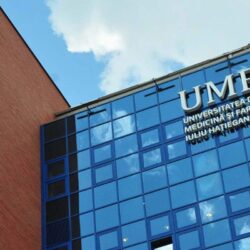UNIVERSITIES
Study MBBS in Romania-futureMBBS
Studying MBBS in Romania presents a remarkable opportunity for medical aspirants seeking quality education at an affordable cost. Renowned for its robust educational framework and rich cultural heritage, Romania attracts thousands of international medical education students each year, particularly those from India who are looking to become globally recognized medical practitioners. Here's everything you need to know about pursuing an MBBS in Romania, detailed across various essential aspects.
Are you interested in studying medicine in Romania?
We would be happy to advise you free of charge about your options for studying medicine in Romania.
Universities where you can study medicine in Romania:
Why study MBBS in Romania?
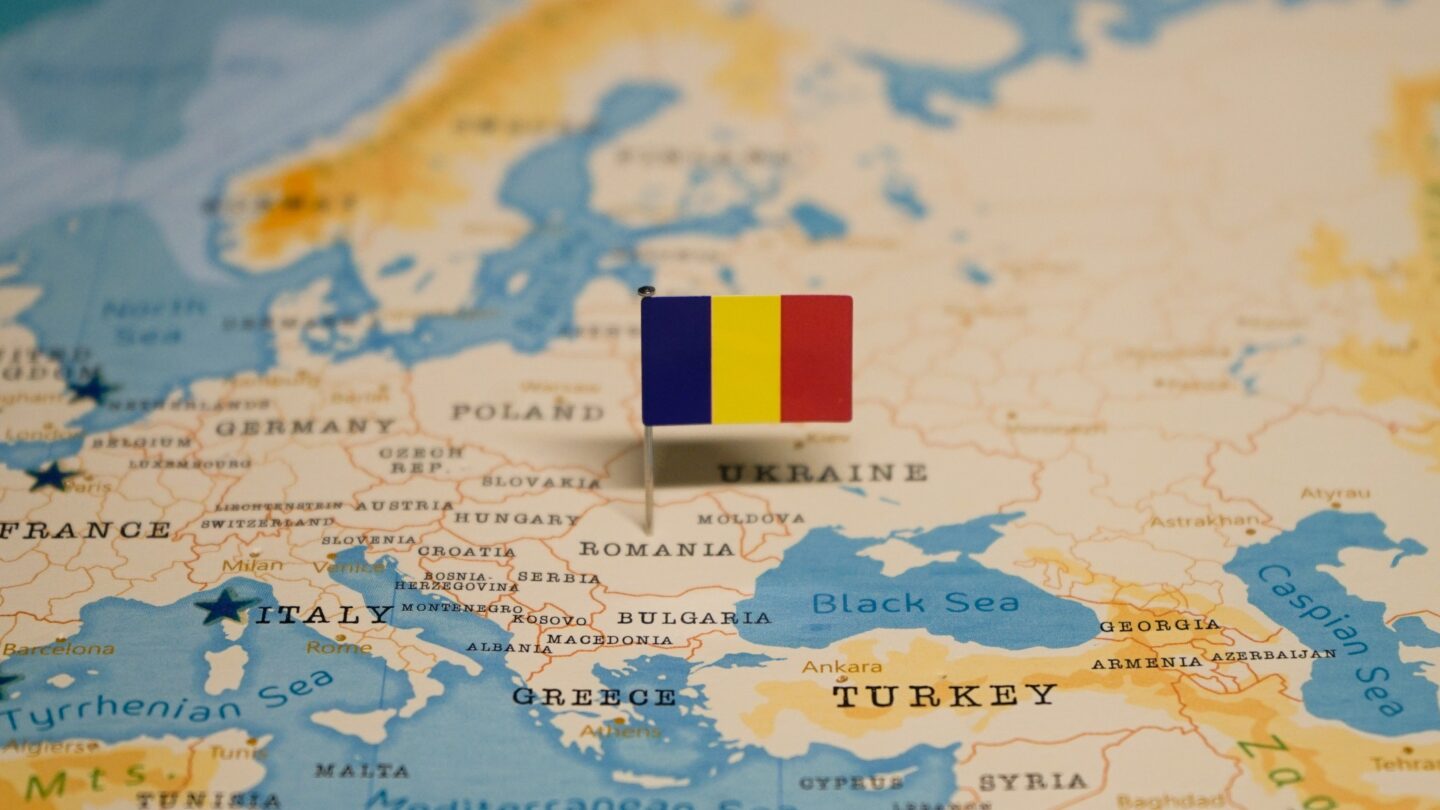
Affordable education
MBBS in Romania stands out in Europe for its affordable tuition fees, offering a significant cost advantage that attracts international students seeking quality medical education without the heavy financial burden often associated with other European countries. Tuition fee for MBBS in Romania typically range from approximately INR 4 to 6 lakhs per annum, making it a cost-effective option compared to its Western European counterparts.
Globally recognized degrees
Medical degrees from Romania are well-recognized across the globe. Foreign medical graduates are eligible to apply for licensure in major countries after passing the respective medical council examinations, such as the USMLE for the United States, the NMC (National Medical Council) screening test (NExT) for India, or the PLAB in the UK. This global recognition opens up a wide range of international career paths post-graduation, enhancing the degree's value.
No language barrier
The availability of MBBS programs taught entirely in English is a major draw for international students to Romanian medical colleges. This eliminates the language barrier that can be a significant hurdle in non-English speaking countries, making Romania an accessible destination for medical students from around the world, including those from English-speaking countries.
Cultural diversity
Romania’s medical colleges attract medical students from across the globe, creating a vibrant, multicultural environment that enriches the student experience. This diversity fosters a broader understanding of different cultures and healthcare systems, which is crucial in medical training and practice. Medical students get to exchange ideas and learn from peers from varied backgrounds, which enhances their learning experience and prepares them for global medical challenges.
Clinical exposure and practical training
Romanian medical schools provide medical students with early hands-on clinical exposure which is integral to high-quality medical training. Hospitals in Romania are equipped with modern facilities and technologies, offering students a practical learning experience under the guidance of experienced medical professionals. This practical approach not only solidifies theoretical knowledge but also prepares students for real-world medical challenges.
Safe and welcoming environment
Romania is known for its warm hospitality and safe living conditions. The country offers a stable and secure environment for students, which is complemented by the beautiful landscapes, rich history, and vibrant culture that Indian students can explore during their time in Romania.
Ease of admission
Unlike many other European countries, the admission process for MBBS in Romania is more straightforward with minimal bureaucratic hurdles. Most medical schools do not require entrance exams like the MCAT. Instead, admissions are often based on secondary school credentials and a basic entrance test, making the process less stressful for prospective Indian students.
Best universities for MBBS in Romania
Romania is home to several prestigious medical universities that offer high-quality medical education recognized by international bodies such as the National Medical Commission (NMC) of India and are listed in the World Directory of Medical Schools. Here’s an overview of some top medical colleges where you can study MBBS in Romania:
1. University of Medicine and Pharmacy "Carol Davila" in Bucharest
- NMC approved: Yes
- NEET required: Yes, for Indian students
- Carol Davila University is one of the largest and most prestigious medical universities in Romania for MBBS in Romania. It offers a diverse range of programs in English, French, and Romanian and boasts state-of-the-art facilities and a high standard of teaching.
2. Iuliu Hațieganu University of Medicine and Pharmacy in Cluj-Napoca
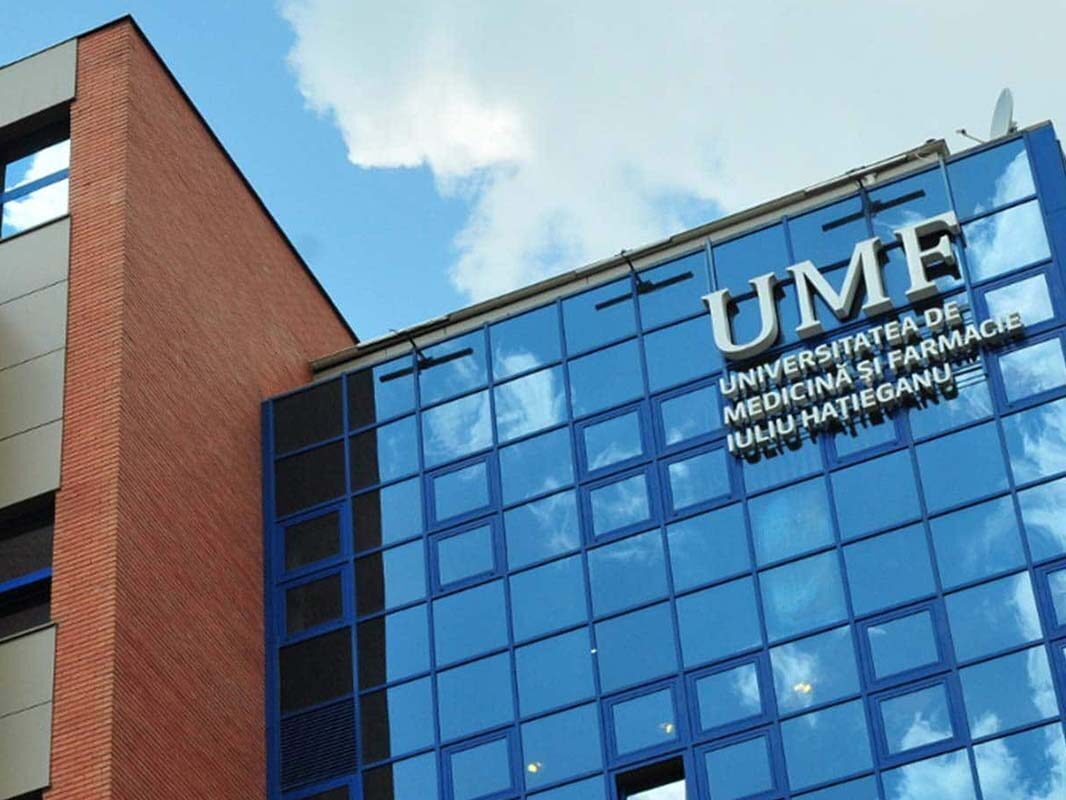
- NMC approved: Yes
- NEET required: Yes, for Indian students
- Known for its rigorous academic standards and excellent research opportunities for MBBS in Romania, Cluj Medical University provides comprehensive training and practical exposure. It is highly regarded for its innovative teaching methods and international collaborations.
3. Victor Babeș University of Medicine and Pharmacy in Timișoara
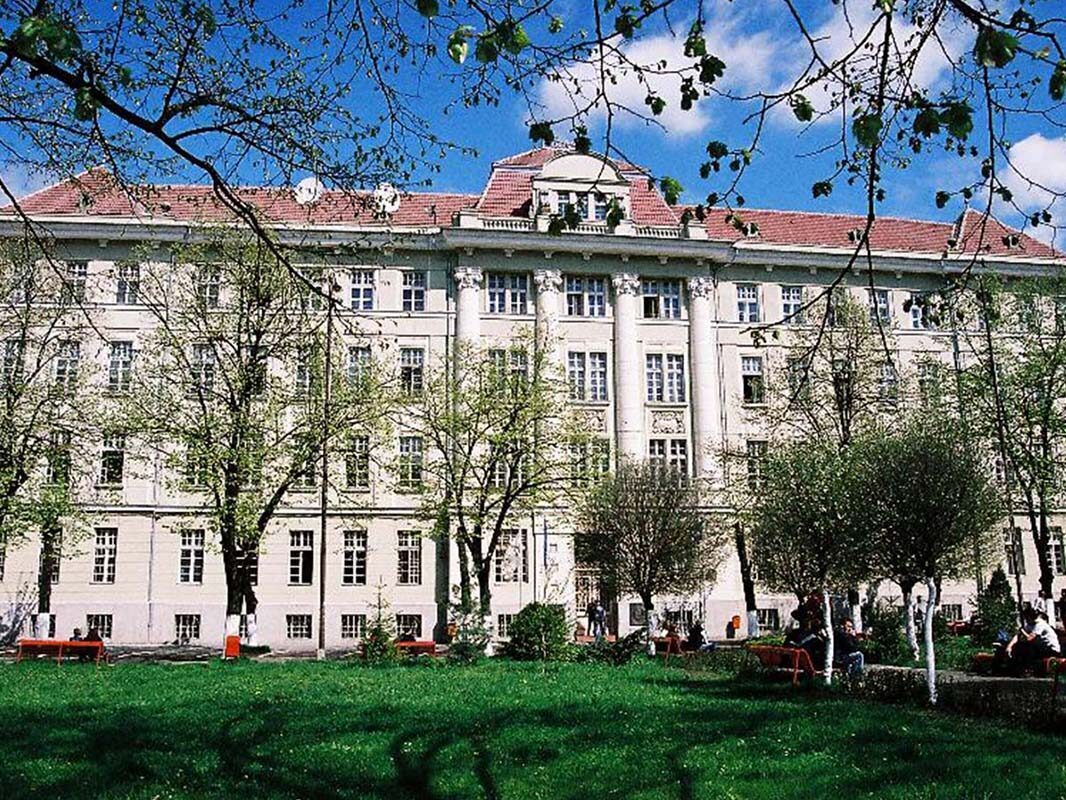
- NMC approved: Yes
- NEET required: Yes, for Indian students
- Victor Babeș University is renowned for its progressive curriculum and integration of clinical practice with theoretical knowledge for MBBS in Romania. This is one of the few medical colleges that offers a welcoming environment for international students with a strong emphasis on practical skills.
4. Grigore T. Popa University of Medicine and Pharmacy in Iași
- NMC Approved: Yes
- NEET Required: Yes, for Indian students
- Located in one of Romania’s cultural and academic hubs, for MBBS in Romania this is one of the medical colleges that provides excellent medical education with ample opportunities for clinical exposure and research in various medical fields.
5. Ovidius University of Constanta
- NMC Approved: Information not widely available, requires verification
- NEET Required: Yes, for Indian students
- Situated in a vibrant coastal city, Ovidius University for MBBS in Romania offers a dynamic educational experience with modern facilities and a focus on student engagement in both academic and extracurricular activities.
6. University of Medicine and Pharmacy of Târgu Mureș
- NMC Approved: Yes
- NEET Required: Yes, for Indian students
- Known for its bilingual programs, for MBBS in Romania this university caters extensively to both Romanian and international student populations, providing a diverse learning environment.
Each of these universities has unique strengths, from modern facilities and robust research programs to comprehensive clinical training. Students looking to study MBBS in Romania are advised to consider their specific academic needs and career aspirations when choosing between these respected institutions.
Additionally, all Indian students need to clear the NEET exam to be eligible for admission to these universities as per the guidelines of the National Medical Commission, which ensures that the quality of medical education acquired abroad meets acceptable standards for practicing in India.

Together for success - futureMBBS and studying medicine abroad
Do you want to study medicine abroad and are looking for the most suitable university for you and don't really know where to start looking for the right country and a good university? futuredoctor is happy to support you!
Besides the Student advisory service In addition to selecting the university and accompanying you to the desired on-site appointments, futureMBBS also offers support during the application process and preparation for possible aptitude tests, as well as orientation at the place of study - including the search for accommodation! Get your application quickly and easily free info pack!
Detailed Overview of MBBS Curriculum in Romania
Pre-Clinical Years (1-3)
The initial years of the curriculum for MBBS in Romania are focused on foundational medical sciences, which are crucial for building a robust understanding of the field. During these years, students engage in:
- Basic Medical Sciences: Courses include Human Anatomy, Physiology, Biochemistry, Microbiology, Pathology, and Pharmacology. These subjects are taught through lectures, laboratory sessions, and small group tutorials, providing students with both theoretical knowledge and practical laboratory skills.
- Pre-Medical Training: This training involves introductory courses in clinical skills and patient communication. It prepares students for their future interactions with patients and their roles in clinical settings. Simulation-based learning using mannequins and standardized patients is often employed to enhance learning outcomes.
Clinical Years (4-6)
The latter half of the MBBS in Romania program focuses on applying the knowledge gained in the first three years to real-world medical settings. This phase includes:
- Core Clinical Rotations: Students rotate through major medical specialties such as Internal Medicine, General Surgery, Pediatrics, Obstetrics and Gynecology, Psychiatry, and Emergency Medicine. These rotations take place in hospitals affiliated with the university, where students are involved in patient care under the supervision of experienced physicians.
- Specialized Clinical Rotations: In addition to the core rotations, students may also spend time in specialized departments such as Cardiology, Neurology, Oncology, or Infectious Diseases depending on the hospital’s available facilities and the university’s curriculum structure.
- Hands-On Training: Clinical rotations are designed to provide hands-on training in diagnosing and managing various diseases. Students learn to perform medical procedures, ranging from simple tasks like drawing blood to more complex procedures under supervision, such as assisting in surgeries.
- Integration of Theoretical Learning: During these years, there is a strong emphasis on integrating theoretical knowledge with clinical practice. Case discussions, bedside tutorials, and grand rounds with senior doctors are common teaching methods used to reinforce learning.
Assessment and Evaluation
- Continuous Assessment: Throughout the MBBS in Romania course, students are assessed regularly through written exams, practical exams, and oral presentations. These assessments help ensure that students meet the required competencies at each stage of their training.
- Final Examinations: At the end of each academic year, comprehensive examinations assess the knowledge and skills acquired. Successful completion of these exams is necessary to progress to the next year.
Research Opportunities
Student Research: Many Romanian medical universities encourage students to engage in research while studying MBBS in Romania. Opportunities may include summer research programs or elective research projects under the guidance of faculty members. This experience is invaluable for students considering careers in academic medicine or specialized clinical fields.
The curriculum for MBBS in Romania is structured to ensure that graduates are not only proficient in comprehensive medical knowledge but also skilled in various clinical procedures, making them well-prepared for their medical careers or further specialization.
Detailed Eligibility Criteria and Admission Process for MBBS in Romania
Academic Requirements
To be eligible for MBBS in Romania and its medical colleges, candidates must fulfill certain academic prerequisites:
- High School Graduation: Applicants must have successfully completed their high school education with a diploma. This education should ideally be science-focused, with mandatory subjects including Biology, Chemistry, and Physics to ensure the student is well-prepared for the rigorous medical curriculum.
- Grade Requirements: Most universities expect a minimum grade threshold in the aforementioned science subjects. The specific grade requirements can vary from university to university but typically hover around a high percentage or GPA to reflect a strong academic foundation in relevant subjects.
Entrance Examination
The MBBS admission process for MBBS in Romania may involve one or more of the following depending on the university:
- Dedicated Entrance Exams: Some Romanian medical universities conduct their own entrance examinations to assess the potential of applicants. These exams typically test knowledge in biology, chemistry, and sometimes physics, mirroring the focus areas of pre-medical education.
- Utilization of Standardized Exams: In lieu of individual entrance exams, some institutions might accept scores from standardized tests like the SAT or ACT, especially for applicants from countries where these tests are common.
Language Proficiency
Proficiency in English is crucial for students enrolling in English-taught MBBS programs:
- Proof of Proficiency: Non-native English speakers are often required to demonstrate their language proficiency through tests such as TOEFL or IELTS. The minimum score requirements for these tests are set by the universities and must be met as part of the application process.
- Exemptions: Candidates from English-speaking countries or those who have completed their education in English might be exempted from submitting these scores. Additionally, some universities might conduct their own language tests as a part of the admission process or offer preparatory language courses.
Application Process
The application process typically involves several steps that need careful attention:
- Submission of Documents: Applicants must submit various documents, including high school transcripts, proof of language proficiency, letters of recommendation, a statement of purpose, and health certificates. Some universities also require a motivational letter or interview as part of the selection process.
- Deadlines: It is crucial to adhere to application deadlines, which can vary significantly between universities. Most Romanian medical universities start their academic year in September, with applications usually closing months earlier.
Recognition and Validation
- Global Recognition: Degrees from Romanian medical universities are recognized globally by various medical councils, including the National Medical Commission (NMC) and the British Medical Council, facilitating international career opportunities.
- Post-Graduation Licensing Exams: Graduates intending to practice medicine in countries like the UK, US, or India must pass respective licensing exams—such as the USMLE, PLAB, or FMGE/NEXT.
By meeting these eligibility criteria and successfully navigating the admission process, candidates can embark on their journey to obtain a high-quality medical education in Romania, which is known for its combination of comprehensive academic rigor and practical medical training.
Types of Intakes
Most Romanian medical universities have two intakes:
Fall Intake (September/October)
Spring Intake (February/March)
Scholarships and Financial Aid for MBBS in Romania
Romanian universities offer several scholarship options to support students financially through their MBBS studies. These opportunities are designed to attract talented students globally and ensure financial constraints do not hinder capable students from pursuing medical careers in Romania.
Types of Scholarships
Merit-Based Scholarships: Awarded based on academic achievements and entrance exam performance.
Need-Based Scholarships: For students who demonstrate financial need, requiring documentation like income statements to qualify.
Government Scholarships: The Romanian government and the European Union offer scholarships covering tuition, accommodation, and sometimes a monthly allowance. Programs like Erasmus+ also provide grants for EU students.
University-Specific Scholarships: Many medical universities in Romania, such as Carol Davila University and Cluj Medical University, offer their scholarships to international students, helping with tuition fees and living costs.
Application Process for Scholarships
- Deadlines: Ensure to meet scholarship application deadlines, which can differ from admission deadlines.
- Documentation: Prepare necessary documents, such as essays, recommendation letters, and financial records.
- Selection Process: Be ready for potential interviews or to submit essays that showcase your motivation and goals in medicine.
Tips for Securing Financial Aid
- Apply Early: Apply as soon as possible, as scholarship funds are often limited.
- Research Extensively: Investigate all available scholarships at the university and other sources.
- Maintain Grades: Many scholarships require a minimum GPA to continue receiving aid.
These scholarships significantly reduce the financial burden of studying MBBS in Romania, making it an appealing option for many students worldwide.
Cost of Living and Study in Romania
Studying MBBS in Romania offers a cost-effective alternative for international students, particularly from a financial perspective. Below are the detailed costs associated with studying and living in Romania for a typical MBBS student.
Tuition Fees
Average Tuition Fees: Medical universities in Romania charge between €5,000 to €7,000 per year for MBBS programs. This converts to approximately ₹4,20,000 to ₹5,88,000, making it an affordable option compared to other European countries.
Living Costs
Monthly Living Expenses: Depending on the city and personal spending habits, living costs range from €300 to €500 per month (about ₹25,000 to ₹42,000). This estimate includes accommodation, food, transportation, and minor personal expenses.
Breakdown of Monthly Living Costs:
Expense Category | Cost Range (€) | Cost Range (₹) |
|---|---|---|
Accommodation | 100 - 200 | 8,400 - 16,800 |
Food | 100 - 150 | 8,400 - 12,600 |
Transportation | 20 - 30 | 1,680 - 2,520 |
Miscellaneous | 80 - 120 | 6,720 - 10,080 |
Additional Financial Considerations
- Books and Supplies: Students should also budget for textbooks and other academic materials, which can cost up to €300 annually (approximately ₹25,200).
- Health Insurance: Health insurance is mandatory for all students, costing around €150 to €250 per year (approximately ₹12,600 to ₹21,000).
These costs highlight Romania's affordability for medical education, especially for students seeking quality education without the high costs associated with other popular medical study destinations in Europe.
MBBS Jobs and Salary in Romania
After completing their MBBS in Romania, graduates have a spectrum of opportunities both within Romania and internationally. The European Union's recognition of Romanian medical degrees significantly enhances job prospects across EU countries. Graduates can also return to their home countries, including India, where they must pass the National Medical Commission (NMC) screening test to practice.
Job Opportunities
Within Romania:
- Graduates can work in public and private hospitals, clinics, and research facilities.
- They may also pursue specialization in fields like surgery, pediatrics, or cardiology through further studies.
Internationally:
- Romanian MBBS degrees are recognized in many countries, allowing graduates to apply for jobs or further education abroad, especially in the EU.
- In countries like the UK and Germany, graduates may need to fulfill additional registration requirements.
Salary Expectations
The starting salary for MBBS graduates in Romania ranges typically between €1,000 to €1,500 per month (approximately ₹84,000 to ₹1,26,000). This can increase significantly with experience, further qualifications, and specialization.
Salary Comparison Table
Country | Average Starting Salary (per month) |
|---|---|
Romania | €1,000 - €1,500 (₹84,000 - ₹1,26,000) |
United Kingdom | £2,500 - £3,500 (₹2,50,000 - ₹3,50,000) |
Germany | €3,500 - €4,500 (₹2,94,000 - ₹3,78,000) |
India (Post-NMC Screening) | ₹60,000 - ₹80,000 |
Career Progression
- Specialization: Further studies can lead to specialization, which typically offers higher salaries and more targeted career opportunities.
- Research: Those interested in research can pursue Ph.D. programs or join research projects, often funded by universities or private sectors.
- Teaching: There is also the option to go into medical education, where experienced professionals teach at medical universities or colleges.
The financial prospects and career progression for MBBS graduates from Romania are promising, with ample opportunities for growth both in clinical and non-clinical roles. This makes Romania an attractive destination for students aiming to pursue a cost-effective yet robust medical education with significant future potential.
Country Profile: Activities, Travel, Food, Accommodation, and Social Life in Romania
Romania, nestled in Eastern Europe, offers a diverse and enriching experience for international students, particularly those pursuing an MBBS degree. Known for its rich history and stunning architecture, Romania provides a plethora of activities and cultural experiences that enhance the social and academic life of students.
Activities and Travel
Romania is a treasure trove of historical and natural attractions:
- Castles and Fortresses: Students can explore iconic sites such as Bran Castle, often associated with the Dracula legend, and Peleș Castle, a masterpiece of Neo-Renaissance architecture.
- Carpathian Mountains: Ideal for hiking, skiing, and mountain biking, offering breathtaking landscapes and a chance to escape the urban environment.
- Danube Delta: Offers opportunities for bird watching, fishing, and boating in one of Europe's most biodiverse areas.
Food
Romanian cuisine is a rich amalgam of flavors with influences from its neighbors:
- Sarmale (Cabbage Rolls): Minced meat with rice wrapped in cabbage or grape leaves, often served with sour cream.
- Mămăliga: A cornmeal porridge, frequently compared to Italian polenta, often accompanies stews or cheese.
- Cozonac: A sweet bread filled with nuts, poppy seeds, or cocoa, popular during Christmas and Easter.
Students will find that eating out in Romania offers both traditional eateries and modern cafes, catering to all tastes and dietary preferences.
Accommodation
Accommodation options for students range from university dormitories, which are the most cost-effective, to private apartments. Dorms are an excellent way for students to meet peers and integrate into the student community, while private rentals provide more privacy and are readily available in university cities.
- University Dormitories: Typically cost between €100 to €200 per month (approximately ₹8,400 to ₹16,800).
- Private Rentals: Cost can vary widely but generally range from €200 to €400 per month (approximately ₹16,800 to ₹33,600), depending on the location and amenities.
Social Life
The social life in Romania is vibrant, with universities often organizing events, including international nights, cultural festivals, and sports activities, which are fantastic ways for students to mingle and make lasting friendships. Cities like Bucharest, Cluj-Napoca, and Timișoara are known for their lively nightlife scenes with clubs, bars, and cafes that are popular among students.
How to Apply?
The application process generally involves:
Submitting an online application.
Providing necessary documentation like transcripts, passport-sized photos, and letters of recommendation.
Attending an interview, either in person or online.
Visa and Health Insurance Requirements
Non-EU students will need to apply for a student visa, which requires proof of acceptance to a university, proof of financial means, and health insurance.
Documents Required for MBBS in Romania
- Passport and photographs
- High school diploma and transcripts
- Health and travel insurance
- Proof of language proficiency
- Birth certificate
- Medical certificate
Conclusion: Studying MBBS in Romania
Choosing Romania for your MBBS studies offers a comprehensive blend of high-quality medical education, affordable tuition fees, and a rich cultural experience, making it an excellent choice for aspiring medical professionals from around the world. With degrees recognized globally and extensive clinical training, Romanian medical universities prepare students to excel in diverse medical environments.
futureMBBS is here to guide you through every step of your journey to studying MBBS in Romania. From choosing the right university to understanding the admission process and preparing for entrance exams, our experts offer tailored advice and support. Book a free consultation with futureMBBS today to learn more about how we can help you achieve your medical career aspirations in Romania.
STARTING SHOT
What are you waiting for? 🎉
Order your information package now, find out about studying medicine abroad and get started as a medical student!
FAQs about studying medicine in Romania
What is the duration of the MBBS program in Romania?
The MBBS program in Romania typically lasts for six years, including both pre-clinical instruction and clinical rotations.
Are Romanian medical degrees recognized internationally?
Yes, Romanian medical degrees are recognized by various international bodies including the National Medical Commission (NMC) and the World Health Organization (WHO), making graduates eligible to practice globally, subject to passing respective national exams.
What language are MBBS courses taught in Romania?
MBBS courses in Romania are primarily taught in English, especially for international students, which eliminates language barriers for non-Romanian speakers.
What are the living costs for students in Romania?
The living costs for students in Romania are relatively low compared to other European countries, with expenses ranging from €300 to €500 per month, covering accommodation, food, and transportation.
Is NEET required for Indian students to apply for MBBS in Romania?
Yes, Indian students are required to pass the NEET exam to be eligible for MBBS admission in Romanian universities as per the requirements of the National Medical Commission (NMC) of India.
At which universities can I study medicine with futurembbs in Romania?
futurembbs works closely with renowned medical universities in Romania, including the Victor Babes University in Timisoara and the Cluj Medical University. These universities offer English-language degree programmes in medicine and are known for their high-quality education.
How can futurembbs help me with my medical studies in Romania?
futurembbs offers comprehensive support throughout the entire process - from application and preparation to relocation, start of studies and beyond. Here you will find an overview of our entire range.
How large are the learning groups at Romanian medical universities?
The exact size of the learning groups may vary depending on the university and the course. In general, however, Romanian medical universities emphasise small learning groups to allow for individual attention and an interactive learning environment.
How do I apply to study medicine in Romania?
To apply to study medicine in Romania, simply fill out our online application form. We will then inform you about all further steps of your application and start the application process at your preferred universities. Click here to place your order.
What happens if I run into problems during my medical studies in Romania?
futurembbs is here to help you. Our team is here to help you solve problems, whether they are academic or related to your life abroad. We offer support in overcoming challenges, from finding accommodation to professional issues and any other difficulties during your medical studies abroad.
How much does it cost to study medicine in Romania?
Romanian universities have tuition fees that have to be paid annually or per semester. You can find more information about the tuition fees on the respective university page here: Timisoara and Cluj.
An overview of the costs involved in studying abroad (living costs, books, leisure, accommodation, etc.) as well as an overview of the tuition fees of all our universities. you can find here.
29 countries for your medical studies
Netherlands
Groningen, Maastricht, Amsterdam, Leiden, Utrecht, Rotterdam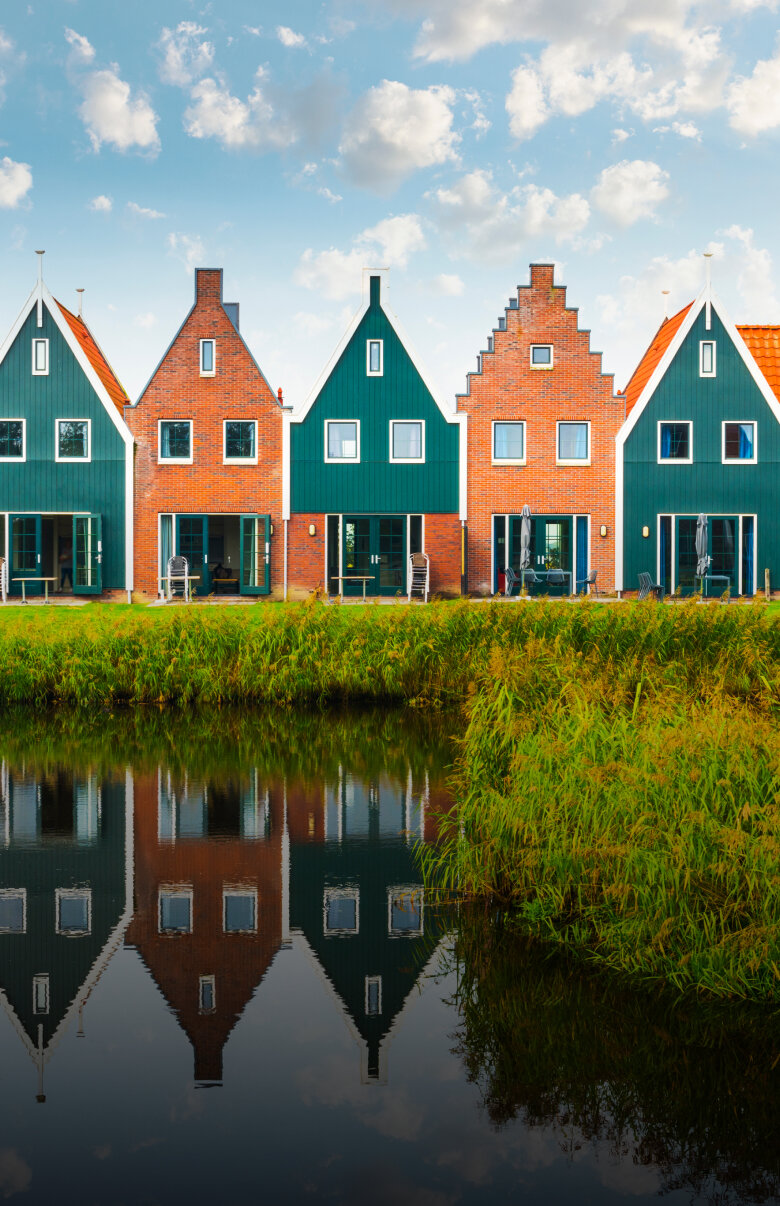
Switzerland
Basel, Fribourg, Bern, Geneva, Zurich, Neuchâtel, Lausanne
